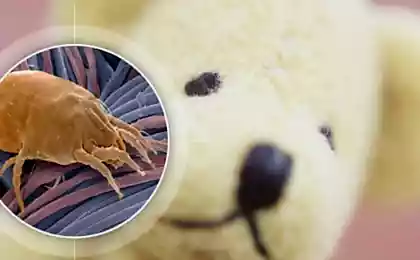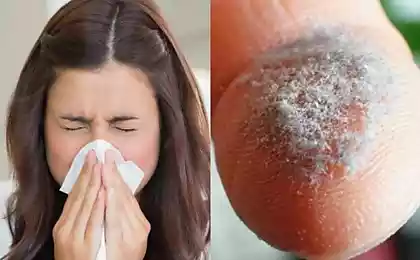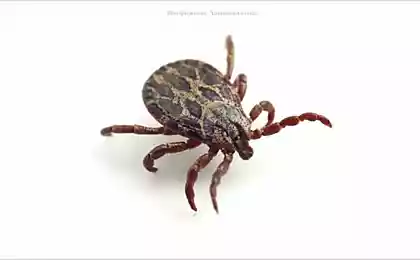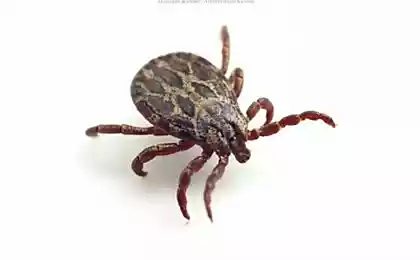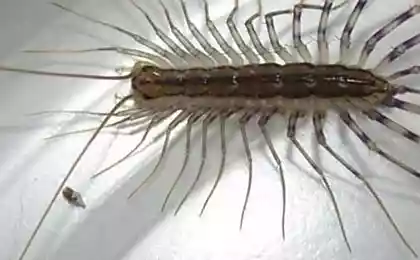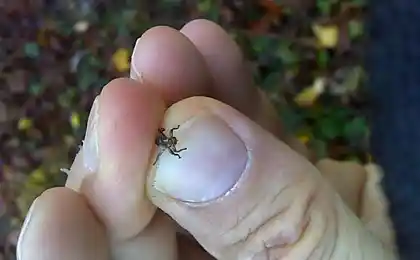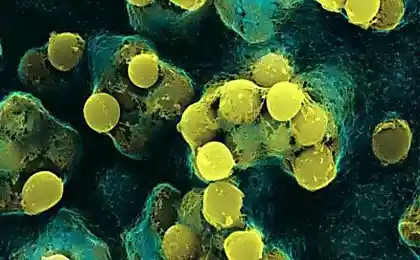178
What to do to avoid your company
The long-awaited summer brings not only hot sun and warm breeze, but also increased activity of blood-sucking mites - small arthropods of the arachnid class, which are carriers of life-threatening diseases, including life-threatening diseases. tick-borne and borreliosis (Lyme disease).

DepositPhotos
Hardly the weather was established at the level of “sun and warm”, as the townspeople tried to open the summer season, and there, among the grass and foliage, they have already thawed and are waiting for them, potential carriers of a terrible infection.
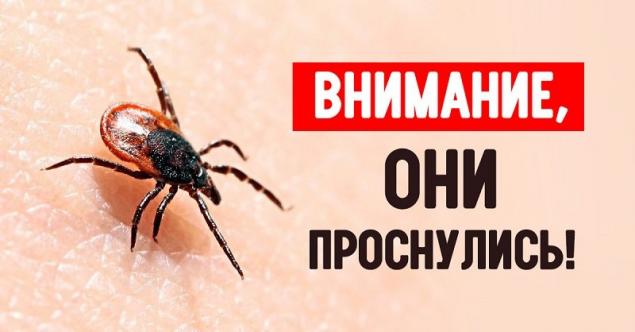
DepositPhotos
The greatest activity of ticks occurs in late spring and early summer, although individual cases of insect attacks are recorded from March to October. The hunting season for ticks fits into the period from the beginning of the flowering of cherry, swelling of the kidneys and the appearance of leaves in birch and linden until the flowering of ivan tea, that is, from the end of May to the first decade of July.
Despite their small size, ticks manage to create big problems. Look at the statistics. Every year in Russia, more than 100 people die from the effects of tick bites!
If you like spending time outdoors, take the necessary precautions to protect yourself from these dangerous bloodsuckers.

Ticks do not like sharp smells, so you can make a "scarer" yourself: boil in the water powder cinnamon and cloves, rinse in this broth clothes and hats, dry them and put on nature.
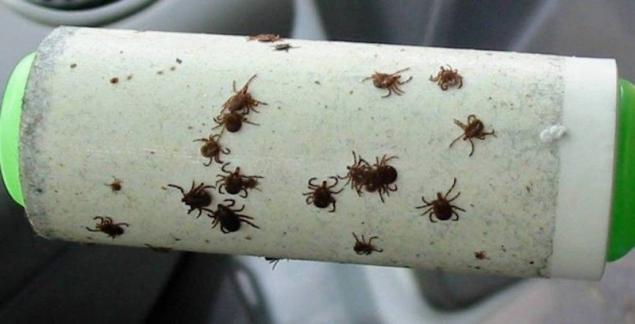
There's another proven way. All you need is roller and essential oil. Spraying essential oil on clothes and rubbing it on the skin will scare away mites that want to attack. Moreover, this trick will help to cope even with mosquitoes and midges.
Essential oils that deter insects
In order not to become a victim of a tick attack, it is necessary to observe elementary precautions that will not allow it to penetrate the surface of the skin.
What to do if a tick bites the tick is sucked for 15-20 minutes, at this time secreting anesthetizing fluid, which makes the bite almost painless. Only later, as a rule, after a few hours there is a feeling of pain or discomfort at the site of the bite.
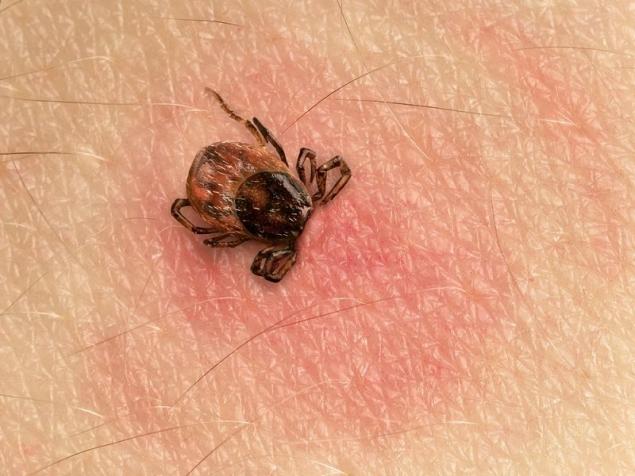
DepositPhotos
The tick can be kept on the human or animal body for up to 12 days. Adult mites that are sucked are most often noticed after 2-3 days: swelling, itching, redness appear at the site of the bite, the tick itself increases in size.
If you find an attached tick, remove it as soon as possible! You can't delay removal. The longer a tick drinks blood, the more infection will enter the body.
If you plan to take the tick for analysis, it is desirable to extract it alive and whole, as a rule, take only such. To avoid tearing the tick, do not pull it sharply.
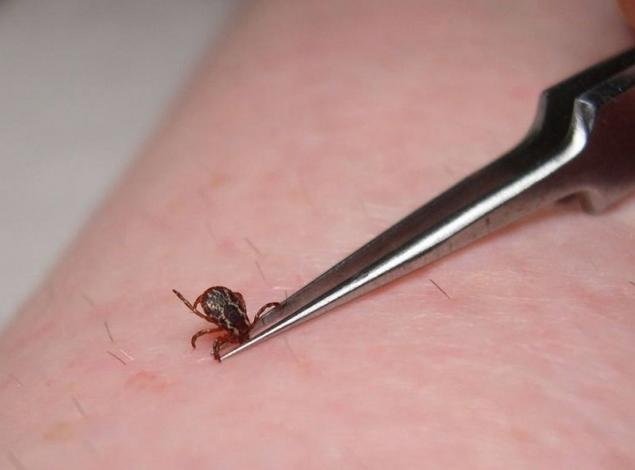
Ticks are conveniently removed with tweezers. In this case, the tick should be captured as close as possible to the proboscis, then carefully pull up, while rotating around its axis in a convenient direction. Usually, after 2-3 turns, the tick is removed entirely along with the proboscis.
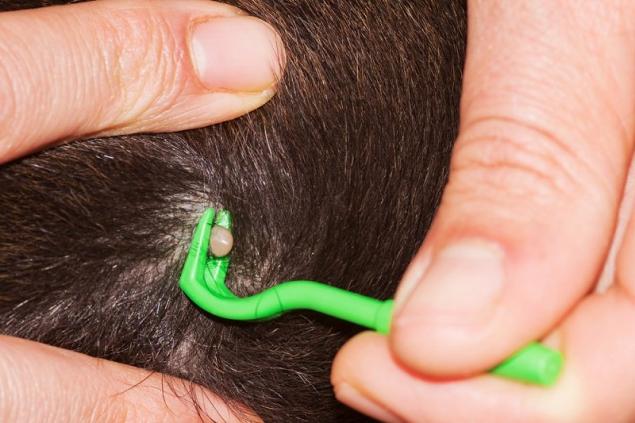
There are special devices for removing ticks that can be purchased in veterinary pharmacies. If the tick has recently suctioned and has not yet swelled, it can be removed with a syringe without a needle. Just suck in the tick's body and it'll come out no problem.
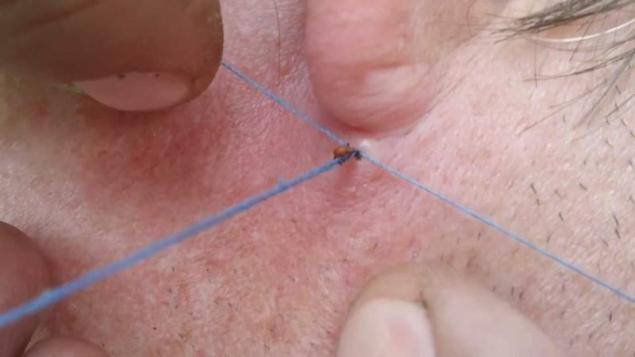
There is a method of removing the tick with a thread. To do this, a strong thread is tied into the knot as close as possible to the proboscis of the tick, then twist it in one direction, slightly pulling up until the tick spins out. This method is not always convenient, especially for self-removal and removal of ticks from the body of animals.
If the tick sucked in an inconvenient place for its extraction, and no one can help you, remove it as you can. Even if it breaks, it is better than spending a long time looking for help. The head of the tick can remain in the skin, so be sure to lubricate the bite with alcohol or disinfectant.
After removing the tick, treat the skin at the site of the bite with tincture of iodine or alcohol, the bandage is not required. Even if the tick bite was short-lived, the risk of infection with tick-borne infections is not excluded.

The tick can be a source of a fairly large number of diseases, so after removing the tick, save it for examination for infections (tick encephalitis, Lyme disease). This can usually be done in an infectious disease hospital or laboratory.
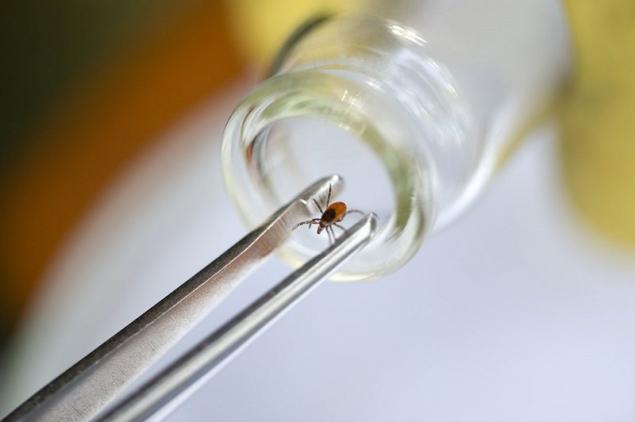
The tick should be placed in a small glass bottle along with a piece of cotton, slightly moistened with water. Be sure to close the bottle with a tight lid and store it in the refrigerator.
Remember that having an infection in a tick does not mean that you will get sick. Tick analysis is necessary for calm, in case of a negative result, and vigilance, in case of a positive one.
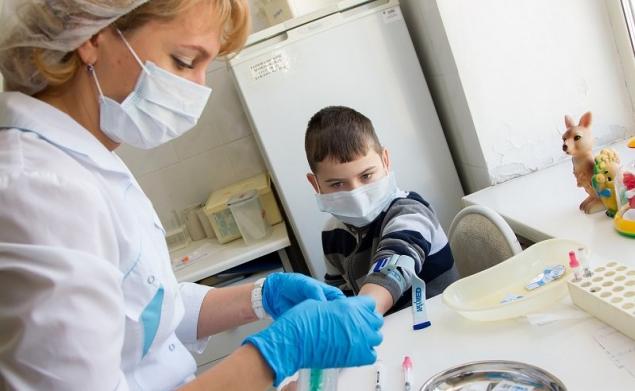
The surest way to determine the presence of the disease is to take a blood test. Blood should be donated no earlier than 10 days after a tick bite. Before this time, the tests will not show anything.
Take tweezers and a plastic bag with you in case you need to remove the clinging tick.
Do not try to kill the tick with your bare hands so as not to catch the disease. When removing the tick, use appropriate tools, and when finished, wash your hands.
Tick encephalitis - the most dangerous of tick-borne infections, sometimes fatal, as it affects the spinal cord and brain - the center of all human life processes. The disease is terrible not only for its course, but also for complications.
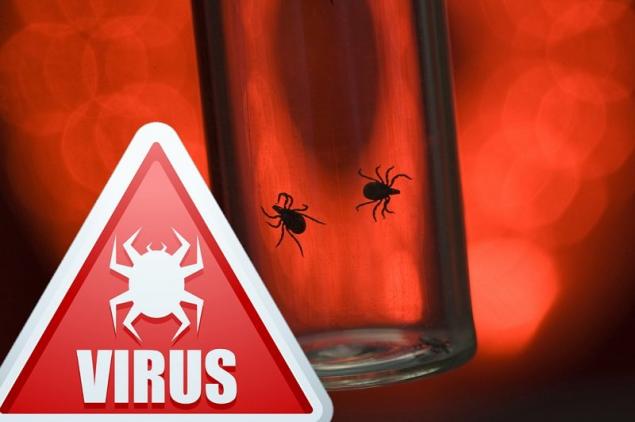
Consequences of encephalitis: mental disorders, disturbance in the work of the musculoskeletal system, weakening of vision and hearing. A person can become disabled, in the worst case die.
Tick borreliosis - a dangerous disease, often occurring latently, but when transitioning to a chronic form leading to disability. It is distributed almost throughout the territory of the Russian Federation, transmitted with a tick bite.
Emergency prevention of tick-borne borreliosis in an adult can be carried out by drinking one doxycycline tablet no later than 72 hours after the tick bite. Tick borreliosis in the early stages is treated very quickly, so do not delay and rather consult a doctor.
Have a safe holiday in nature! Don’t forget to share this advice with your friends.
"Site" It will tell you what to do so that annoying crawling and flying insects do not spoil your vacation. Find out how to make a trap for blinders and gadges on the garden plot with your own hands.
A simple trick will help you rid yourself and your family of allergies caused by dust mites. The sooner you start fighting these dangerous dwellers, the less harm they will do to you.

DepositPhotos
Hardly the weather was established at the level of “sun and warm”, as the townspeople tried to open the summer season, and there, among the grass and foliage, they have already thawed and are waiting for them, potential carriers of a terrible infection.

DepositPhotos
The greatest activity of ticks occurs in late spring and early summer, although individual cases of insect attacks are recorded from March to October. The hunting season for ticks fits into the period from the beginning of the flowering of cherry, swelling of the kidneys and the appearance of leaves in birch and linden until the flowering of ivan tea, that is, from the end of May to the first decade of July.
Despite their small size, ticks manage to create big problems. Look at the statistics. Every year in Russia, more than 100 people die from the effects of tick bites!
If you like spending time outdoors, take the necessary precautions to protect yourself from these dangerous bloodsuckers.

Ticks do not like sharp smells, so you can make a "scarer" yourself: boil in the water powder cinnamon and cloves, rinse in this broth clothes and hats, dry them and put on nature.

There's another proven way. All you need is roller and essential oil. Spraying essential oil on clothes and rubbing it on the skin will scare away mites that want to attack. Moreover, this trick will help to cope even with mosquitoes and midges.
Essential oils that deter insects
- eucalyptus
Eucalyptus oil can be used alone or in combination with lemongrass oil to deter any insects.
DepositPhotos - lemon
Lemongrass oil get from Chinese lemongrass, it has a bright citrus aroma and is a natural remedy for protection from fleas and ticks. - mint
This essential oil is toxic to insects and is an effective natural repellent! - lavender
The most amazing thing is that we love the smell of lavender, but ticks hate it. Moreover, this also applies to midges and mosquitoes.
In order not to become a victim of a tick attack, it is necessary to observe elementary precautions that will not allow it to penetrate the surface of the skin.
- As you know, ticks prefer to bite where the softest skin: under the knees, on the folds of the hands, in the groin, underarms, on the neck and head. Make sure that all the listed places are tightly closed, put on long pants, tuck them into shoes, which should also be as closed as possible, be sure to wear a headdress.
707215 - Tuck your pants into your socks or shoes, even if it’s hot outside.
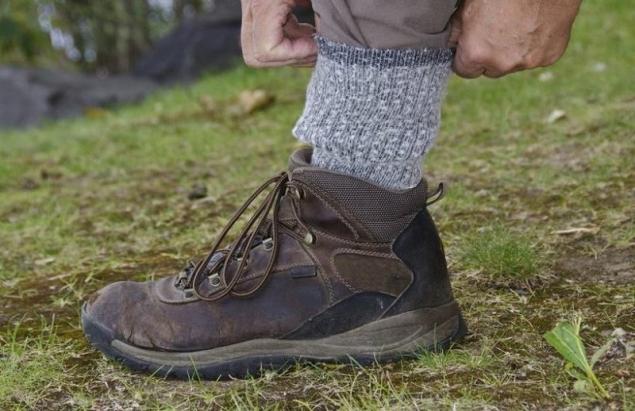
- Choose a hat that covers the entire head, including the back of the head. You can just put on a spacious hood.
- If you have to rest with an overnight stay, you need to take a tent with you, which is tightly locked. Let it be in a small mesh, these holes will still not allow mites to enter.
- In order to get to the right place and penetrate the skin, the tick takes about 30 minutes, so do a body inspection every 20 minutes. Ticks live in grass and on shrubs, so, getting on a person, they crawl up.
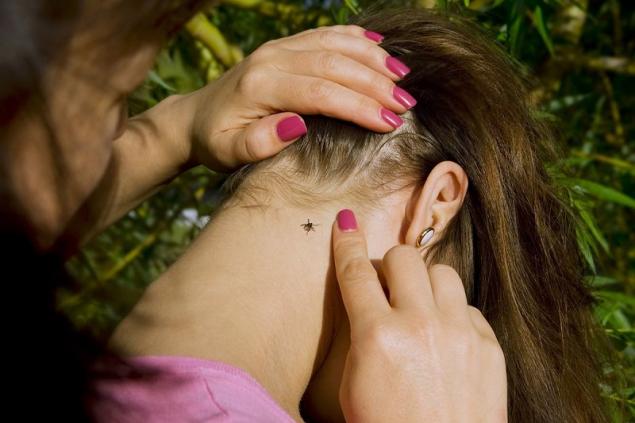
DepositPhotos - Do not forget about the additional funds. There are a large number of special chemical aerosols and sprays that scare away ticks or kill them. Before using the tool, be sure to read the instructions for use. A more global method: vaccination. However, the vaccine protects only against encephalitis.
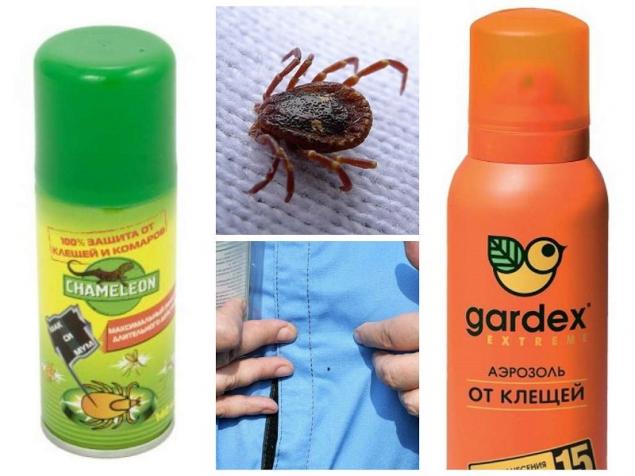
- For a place of rest, parking or overnight, choose dry pine forests with sandy soil or areas devoid of grassy vegetation, where mites are extremely rare. Before the night you should carefully examine the clothes, body, hair.
What to do if a tick bites the tick is sucked for 15-20 minutes, at this time secreting anesthetizing fluid, which makes the bite almost painless. Only later, as a rule, after a few hours there is a feeling of pain or discomfort at the site of the bite.

DepositPhotos
The tick can be kept on the human or animal body for up to 12 days. Adult mites that are sucked are most often noticed after 2-3 days: swelling, itching, redness appear at the site of the bite, the tick itself increases in size.
If you find an attached tick, remove it as soon as possible! You can't delay removal. The longer a tick drinks blood, the more infection will enter the body.
If you plan to take the tick for analysis, it is desirable to extract it alive and whole, as a rule, take only such. To avoid tearing the tick, do not pull it sharply.

Ticks are conveniently removed with tweezers. In this case, the tick should be captured as close as possible to the proboscis, then carefully pull up, while rotating around its axis in a convenient direction. Usually, after 2-3 turns, the tick is removed entirely along with the proboscis.

There are special devices for removing ticks that can be purchased in veterinary pharmacies. If the tick has recently suctioned and has not yet swelled, it can be removed with a syringe without a needle. Just suck in the tick's body and it'll come out no problem.

There is a method of removing the tick with a thread. To do this, a strong thread is tied into the knot as close as possible to the proboscis of the tick, then twist it in one direction, slightly pulling up until the tick spins out. This method is not always convenient, especially for self-removal and removal of ticks from the body of animals.
If the tick sucked in an inconvenient place for its extraction, and no one can help you, remove it as you can. Even if it breaks, it is better than spending a long time looking for help. The head of the tick can remain in the skin, so be sure to lubricate the bite with alcohol or disinfectant.
After removing the tick, treat the skin at the site of the bite with tincture of iodine or alcohol, the bandage is not required. Even if the tick bite was short-lived, the risk of infection with tick-borne infections is not excluded.

The tick can be a source of a fairly large number of diseases, so after removing the tick, save it for examination for infections (tick encephalitis, Lyme disease). This can usually be done in an infectious disease hospital or laboratory.

The tick should be placed in a small glass bottle along with a piece of cotton, slightly moistened with water. Be sure to close the bottle with a tight lid and store it in the refrigerator.
Remember that having an infection in a tick does not mean that you will get sick. Tick analysis is necessary for calm, in case of a negative result, and vigilance, in case of a positive one.

The surest way to determine the presence of the disease is to take a blood test. Blood should be donated no earlier than 10 days after a tick bite. Before this time, the tests will not show anything.
Take tweezers and a plastic bag with you in case you need to remove the clinging tick.
Do not try to kill the tick with your bare hands so as not to catch the disease. When removing the tick, use appropriate tools, and when finished, wash your hands.
Tick encephalitis - the most dangerous of tick-borne infections, sometimes fatal, as it affects the spinal cord and brain - the center of all human life processes. The disease is terrible not only for its course, but also for complications.

Consequences of encephalitis: mental disorders, disturbance in the work of the musculoskeletal system, weakening of vision and hearing. A person can become disabled, in the worst case die.
Tick borreliosis - a dangerous disease, often occurring latently, but when transitioning to a chronic form leading to disability. It is distributed almost throughout the territory of the Russian Federation, transmitted with a tick bite.
Emergency prevention of tick-borne borreliosis in an adult can be carried out by drinking one doxycycline tablet no later than 72 hours after the tick bite. Tick borreliosis in the early stages is treated very quickly, so do not delay and rather consult a doctor.
Have a safe holiday in nature! Don’t forget to share this advice with your friends.
"Site" It will tell you what to do so that annoying crawling and flying insects do not spoil your vacation. Find out how to make a trap for blinders and gadges on the garden plot with your own hands.
A simple trick will help you rid yourself and your family of allergies caused by dust mites. The sooner you start fighting these dangerous dwellers, the less harm they will do to you.
How to prepare a salad dressing
The ancestors of people with negative Rh factor were not people. That's who really is...





